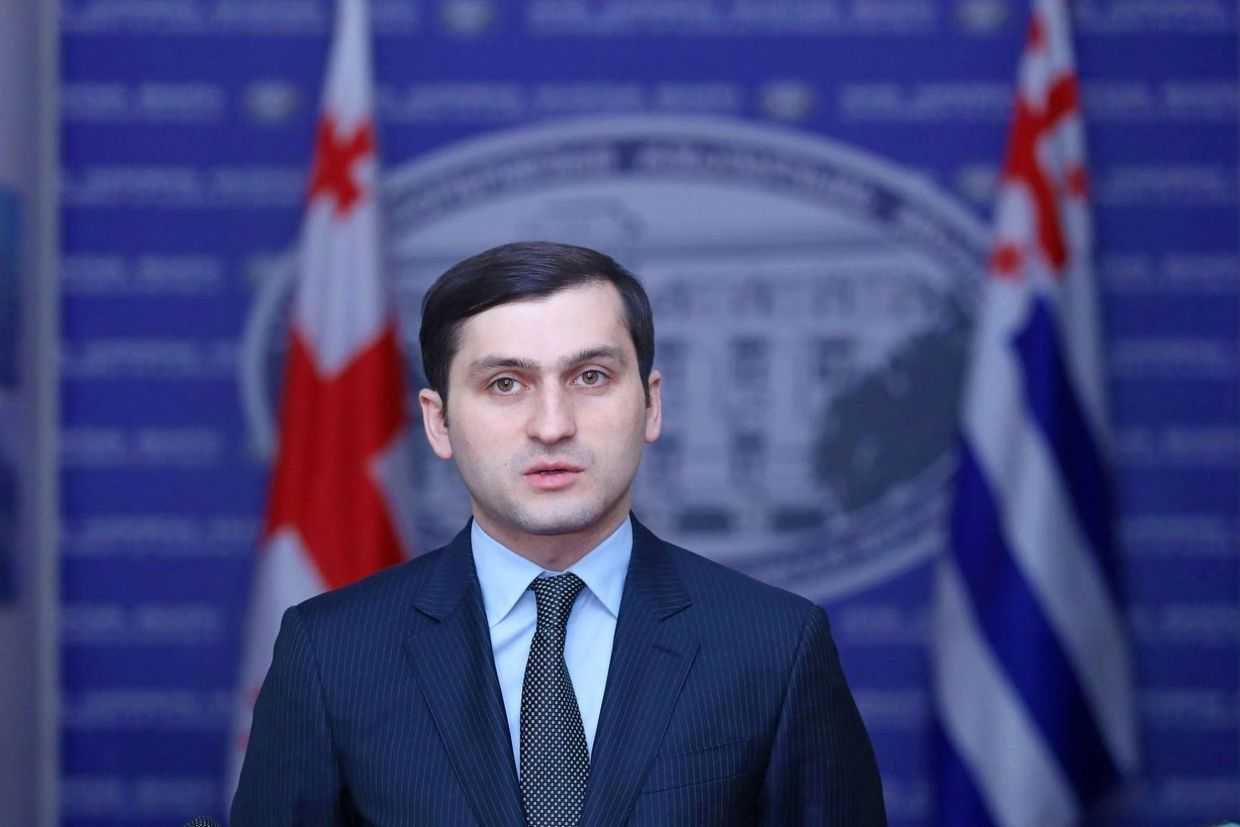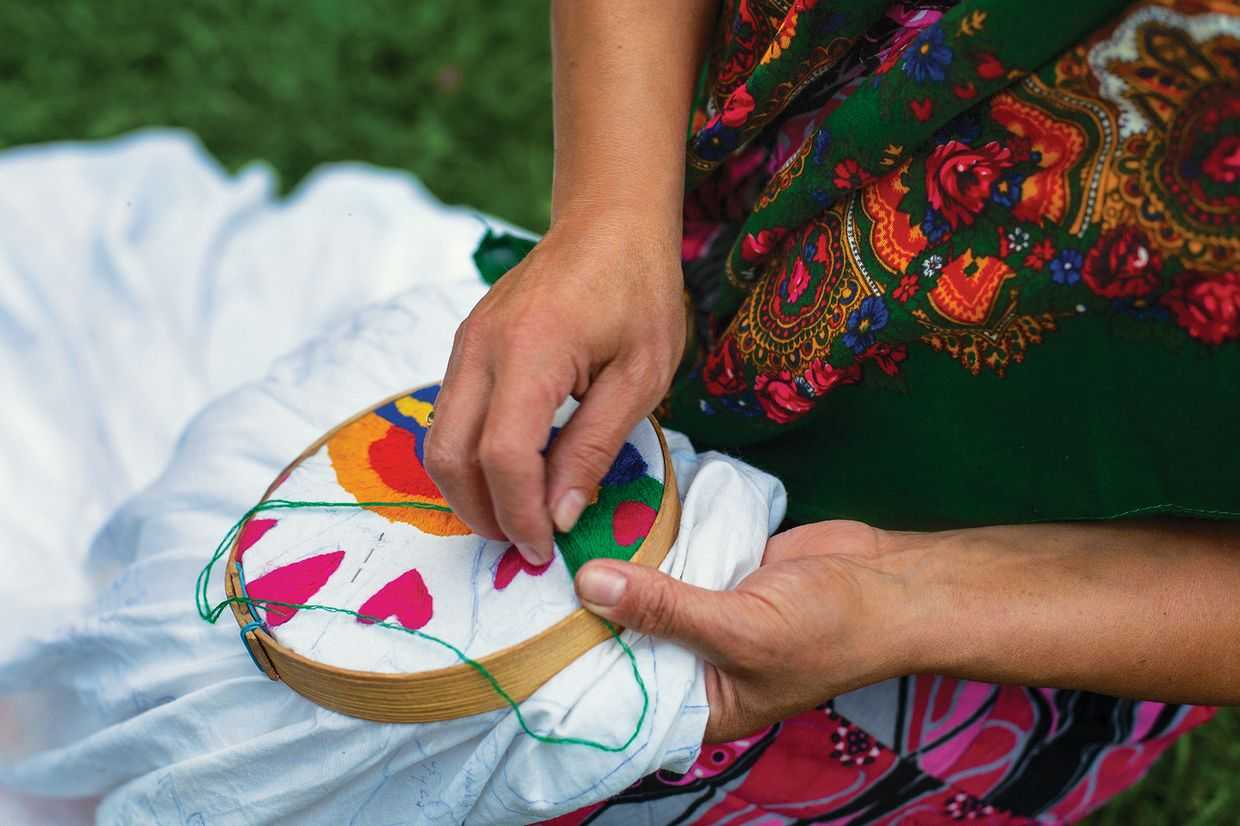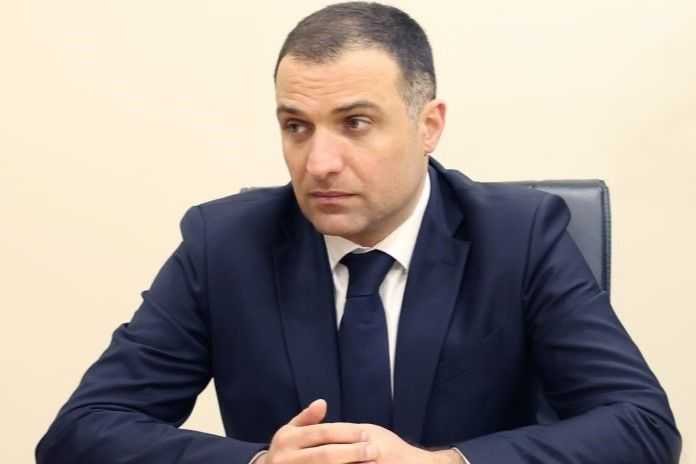
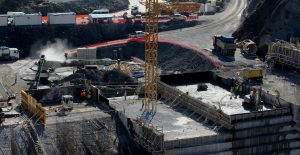
 As hydroelectric power projects in Adjara gain momentum, the region’s inhabitants question their sustainability and impact on the environment.
As hydroelectric power projects in Adjara gain momentum, the region’s inhabitants question their sustainability and impact on the environment.
Ongoing works on hydroelectric projects in the Autonomous Republic of Adjara, in southwest Georgia on the coast of the Black Sea, are having negative consequences on the local population and environment.
‘We warned that the explosions would affect health, flora, and fauna. Oak trees have withered. Nine streams have dried up, and we have problems with drinking water too’, Badri Makharadze from the village of Chanchkhalo says, showing the rows of dead trees leading to the other side of the village.
‘When the springs dried up, the local government managed to organise running water for only six households, and they can use it only for drinking, as the pressure is too low for anything else’, he adds.
Chanchkhalo has been affected by a project of Acharistskali cascades hydroelectric power plant (HPP) project carried out in Adjara. The cascade consists of four HPPs — Zomleti, Vaio, Dandalo and Chorokhi, located in Keda, Shuakhevi, and Khulo municipalities.
The Shuakhevi Power Station project
The Georgian government plans to construct and operate two independent power stations in Shuakhevi, with a total installed capacity of 185 MW. They plan to sell most of the energy produced to Turkey, but during periods of energy deficit (usually from December to February), electricity will be supplied to Georgia’s electrical grid. The Shuakhevi HPP project foresees construction of two dams with reservoirs and one weir on the rivers Acharistskali, Skhalta, and Chirukhistskali. The plants will operate at maximum capacity when prices electricity prices in Turkey are high (prices differ throughout the day). According to the plan, the project will be completed in 2017, with the plants operating for 45 years, until 2066.
Reality in Upper Adjara
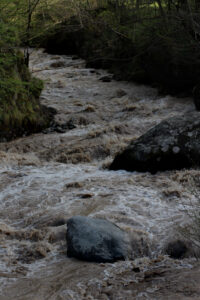
There are 35,200 families in Georgia registered as living in the natural disaster risk zones, 11,000 of them urgently need to be resettled to a safer place. The affected population in this case are classified as ‘eco-migrants’ and part of Adjara population is among them.
In 2004–2010, 763 families were resettled as a result of natural disasters, like floods caused by heavy rains and rapid melting of snow, and landslides in Adjara (including people from Khulo and Shuakhevi).
Khulo Municipality, with a population of 36,800 people, is located to the extreme east of the project impact area. There are 77 villages in the municipality; 31 of them lie in the immediate impact zone. Periodically, people in Khulo are forced to migrate due to natural disasters characteristic of the area (landslides and avalanches).
Shuakhevi Municipality (population: 22,800) is located to the west of Khulo. It consists of 68 villages, with 17 falling in the immediate impact zone. The municipality suffers from a high unemployment rate, which rises further still in mountainous settlements such as Oladauri (75%), located downstream of the Chirukhi Dam.
The communities of Zamleti and Oladauri are located in the impact zone of the Shuakhevi HPP. The majority of the population in these mountainous regions rely on agricultural products for their livelihood, while a small section of the population engages in fishing, intended for personal use.
There are similar levels of poverty in populated areas in the impact zones of the Koromkheti and Khertvisi HPPs. Most of the labour force there is employed in schools, local municipal bodies, medical facilities and shops.
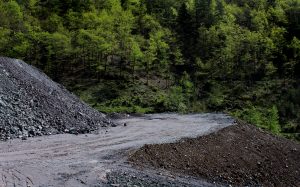
‘We demanded that a commission be established to study the situation, but it appears that the government and the company are one on this. The so-called commission introduced a report suggesting there were no hazards or risks; however our harvest has reduced three fold — for tobacco, corn, and beans. It has even affected beekeeping; the bees cannot feed themselves when there are no flowers’, Badri Makharadze from the village of Chanchkhalo says.
He remembered that the region’s architecture service came to the village to calculate the losses, but they only proposed from $1,000 to $2,000 to families, saying that they didn’t have more.
‘They’ve organised contracts in a way that people aren’t able to appeal in court in the future. The so-called commission’s report, meanwhile, wrote that the damage was a result of landslide processes and, this is why the local government is responsible for compensation instead of the company’, Badri explained.
Some of the affected families signed the contracts and took the money, feeling that they had no other choice.
‘In my case, the problem was that my son has an apartment elsewhere. But I have lived here for 25 years. I am a teacher and I planted all these fruit trees by myself. Why do I have to be punished for getting old here’, Nadia Dumbadze, 75, told us.
A spokesperson for the company stated that villagers usually demand compensation for too many issues.
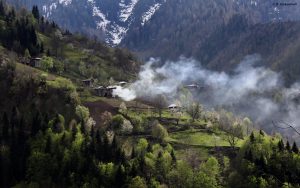
‘The only village where there is threat of landslide is Tsablana. However we haven’t affected this process. We organised a contribution to the local government and they will build houses for these families in Batumi’, the spokesperson told us, adding that they are not familiar with the complaints from Chanchkhalo, but they admit that the village is in the impact zone of their project.
Irakli Macharashvili, who coordinates the biodiversity programme at the Green Alternative Association, claims that during the environmental impact assessment process, Chanchkhalo wasn’t properly researched.
‘This is why the company doesn’t want to admit that their construction has any kind of impact. This would cause the number of compensation claims to increase, which would cause problems with their investors. Usually companies do not have money [for compensation], and they ask for money from other organisations, for example the European Bank for Reconstruction driand Development.’
Irakli explains that since there is no background information on the conditions before construction began, the company can claim that any damage, springs drying up, reduced access to running water, etc. is not their fault. If there was a proper preliminary evaluation this would not be possible.
‘Large companies often use this trick’, he says.
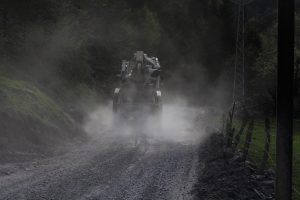
He believes that a geological assessment of the project’s impact should have been carried out before deciding whether or not to grant permission for it to go ahead. Since this was not the case, there have been unintended consequences of the construction work.
‘They just force a village of 170 households to leave their homes. We won’t have just eco-migrants here, but economic migrants too’, Madjaradze added.
Due to harsh weather conditions, people in Khulo and Shuakhevi municipalities usually keep livestock and grow potatoes and tobacco. Populated areas of mountainous Adjara do not have fertile soil. Natural disasters (landslides and erosion) are very frequent in Khulo, Shuakhevi, and Keda municipalities. They are a result of natural conditions, but are also linked to anthropogenic activities such as overgrazing and deforestation. These landslide and erosion processes lead to a loss of agricultural lands and pastures, impeding the development of agriculture in the region.
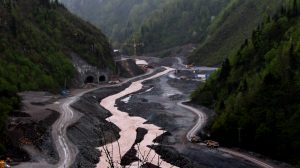
More than 250 settlements face a high risk of natural disasters in mountainous Adjara. Over the last three decades, 1,900 houses and about 350 structures have been destroyed by landslides, with more than 6,000 families resettled. Many villages have been completely isolated due to the collapse of more than 40 bridges and crossings. Landslides in the region can have a deadly effect. On 19 April 1989, the entire village of Tsablana was buried under a landslide, killing two dozen of its inhabitants.
Roads and bridges leading to a number of villages in the region ar at risk due to the HPP cascade project. Kvatia, DidAdjara, Makhalakidzeebi, and boroughs Khulo, Shuakhevi, and Keda are at most risk under the project’s implementation.
‘If they really build a dam here, where should people go? If the neighboring village gets new apartments, why won’t they give us houses too? Our village is the most affected’, Guram Beridze from the village of Kvatia tells us.
Problems
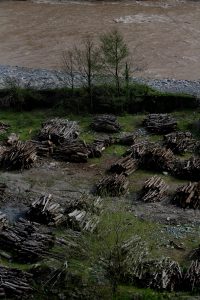
The estimated volume of rock and earth that needs to be extracted during construction (which cannot be reused) is about 4,729,000 cubic metres. This is usually dumped in ravines on the roads between villages, destroying trees and spilling into small rivers and springs. Blocking rivers in this way can be a major contributor to landslide processes.
During construction, 1408 trees listed in the Red Book of endangered species have been destroyed so far. The government granted permission for these trees to be cut down on the provision that the company plants the same species of trees elsewhere.
The government of Georgia also eased the company’s obligation to get a license to extract 600,000 cubic metres of gravel and sand; 170,000 cubic metres has already been extracted. The Adjaran government lobbied for this deal, which allowed the company to begin extraction without following the usual protocols.
Environmental activists claim that environmental impact assessments (EIA) were only conducted in 20 out of 60 HPP projects in Georgia. Over the last 40 years, the area of arable lands reduced by two thirds, the area of perennial plants by 100 hectares.
‘The low rate of EIAs is due to a lack political will’, they claim, adding that it is unknown if anyone runs background checks on the people who write the EIAs.
